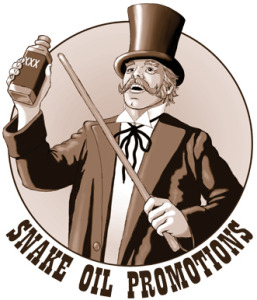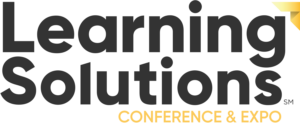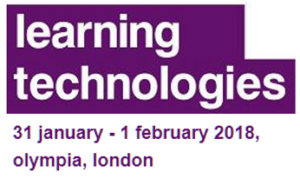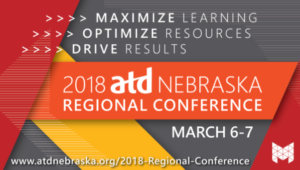The Snake Oil Salesman. Despite how dated the term is – most hypotheses on the subject estimate it first being coined in the 19th century – the phrase still conjures up a standard vision of a man in the old west, well dressed, and selling the miracle elixir that will cure whatever ails you. The phrase is still used today to describe unscrupulous practices, usually in the context of sales.
 In this post I’m going to explore the presence of snake oil in a somewhat less likely place than in the old west; I’m going to explore the presence of snake oil within your personal learning network.
In this post I’m going to explore the presence of snake oil in a somewhat less likely place than in the old west; I’m going to explore the presence of snake oil within your personal learning network.
This might seem like a strange connection for me to be making. After all, you’re probably thinking that selling snake oil has nothing to do with PLNs.
If so… you’d be wrong.
We’re All Selling
Let’s start with a baseline: We’re all selling ourselves. Every one of us. This isn’t a bad thing; it’s just something we need to be aware of in the context of personal learning networks.
I’ve often spoken and written about the importance of personal branding, especially in the context of social media and personal learning networks. Personal branding is essentially a sales technique; you are positioning you and your abilities in a way that would make someone want to connect with you. This isn’t just a practice used by consultants who are looking for connections that will literally lead to a revenue-generating sale either.
When people are strategic about building and leveraging their personal learning networks, they are also (or at least, they should be) very conscious about managing their personal brand. Your personal persona, especially online, and the image you portray are what makes you attractive to connect with. The “selling process” of personal learning networks is the efforts individuals take to not only connect with others, but to create an image around themselves so that others will want to connect with them.
Making a Buying Decision
A sales process only really works when there are people willing to buy what is being sold. In a personal learning network, the decision to connect with someone is the closing of a sale. Like any sale, the decision to close comes when both sides see value in the transaction – in this case the connection being made between two individuals. The decision to connect with someone is based on a number of personal factors. For me, the primary driver to connect with someone and have them be a part of my PLN is if that person is going to be a resource that helps me grow. I generally look for people that are doing interesting work that I can learn from. I want to have conversations with people in which ideas and practices that move our industry forward are being shared. That’s where my passion lies, and those are the people I am actively seeking to connect with.
Regardless of what you’re personally seeking for your PLN, I’m sure you’ll find no shortage of individuals whose brand matches that criteria.
And in some cases, that’s the problem.
Buyer Beware
In any sales environment, be it stock trading, used car sales, or eBay, you’ll find the modern version of the Snake Oil Salesman. Your personal learning network is no different.
Find that hard to believe? Wikipedia defines a snake oil salesman as “someone who knowingly sells fraudulent goods or who is himself or herself a fraud, quack, charlatan, or the like.” We’ve all encountered snake oil salesmen in the building of our PLNs; the problem is that we’re often too busy building our PLN to realize we’ve invited one of them into our network. That’s a big problem.
Let’s look at the origins of the snake oil salesman. This is a person who would search for a need people had – usually a disease that available medicines could not address. He or she would then create a fake elixir and position it as a cure for what the public needed.
This created two major problems. First, people were still sick; the problem was not solved. Second, and more importantly, as more people fell under the spell of the snake oil salesman, they were taken further off the path they needed to be on, unaware that they had gone astray.
This is the real danger posed by snake oil in your PLN. There are plenty of individuals and organizations whose brand is more powerful than the actual substance behind the brand. They are experts at marketing themselves as experts. They give the appearance of someone that can enhance your PLN and help it grow, when in reality they serve as an anchor that keeps it from moving forward. They take you off the path you want to be on, usually without you being aware of it happening.
It’s critical that we are able to identify snake oil salesmen in and around our personal learning networks. But how can we do that?
Enthusiasm: The Secret Ingredient of Snake Oil
It’s not always easy to sniff out snake oil in your PLN. But there’s one thing that all snake oil salesmen seem to have in common: Enthusiasm.
Don’t get me wrong, I’m not saying that everyone that’s enthusiastic about what they do is a snake oil salesmen. Hell, enthusiasm is one of the traits I appreciate most from those in my PLN. But there are plenty of people that leverage the excitement of enthusiasm to mask their snake oil. They use enthusiasm to exaggerate their practices and efforts, building connections based on the energy and excitement they bring to a conversation rather than the substance.
And that’s where the danger lies. Someone that’s adding energy and excitement to a conversation may be a lot of fun, but without substance it’s unlikely they are helping you grow, and growth is the primary purpose of a personal learning network. The snake oil salesman portrays themselves as a thought leader in a space, and usually does a great job of facilitating a self-congratulatory environment in which everyone’s efforts are immediately perceived as leading-edge. While that’s usually a cyclical environment full of positive energy, it’s also an environment that insulates itself from the rest of the world, providing those in such a network with an inflated interpretation of where there knowledge and skills exist against industry standards.
Avoiding the Snake Oil Salesman
There are two primary ways to avoid the snake oil salesmen in your personal learning network. The first is to realize that enthusiasm is an intoxicating and magnetic force. It draws us in, taps into our emotions, and can easily alter our perceptions. We need to be aware of this. With that awareness in place we can look past the enthusiasm. As I mentioned earlier, enthusiasm isn’t a bad thing. What we want and need in our PLNs is enthusiasm built upon substance. Enthusiasm in itself is not an indicator of competence. When you start connecting with someone, dig deeper. Find out where they do their work, and with who. Share examples.
I’m not implying an inquisition; this type of sharing is a natural part of a strong PLN. It’s also when the holes in the snake oil salesman’s facade start to become apparent.
The second way to avoid the snake oil salesman is to build a PLN with a career maturity model in mind. We’re all at different stages in our careers, and we all work for organizations with different learning cultures. We need to connect with people across this continuum, including people who are where we have been in the past, where we are today, and where we hope to be in the future. I believe each of us is our own yardstick. I don’t judge myself against anyone else; I judge myself against where I was yesterday. Connecting with people across this career maturity model helps us better understand the context of where we have been, where we are, and where we are going.
That context also helps us see through the enthusiasm of the snake oil salesman. It provides the examples that help us verify that we are on a growth path.







